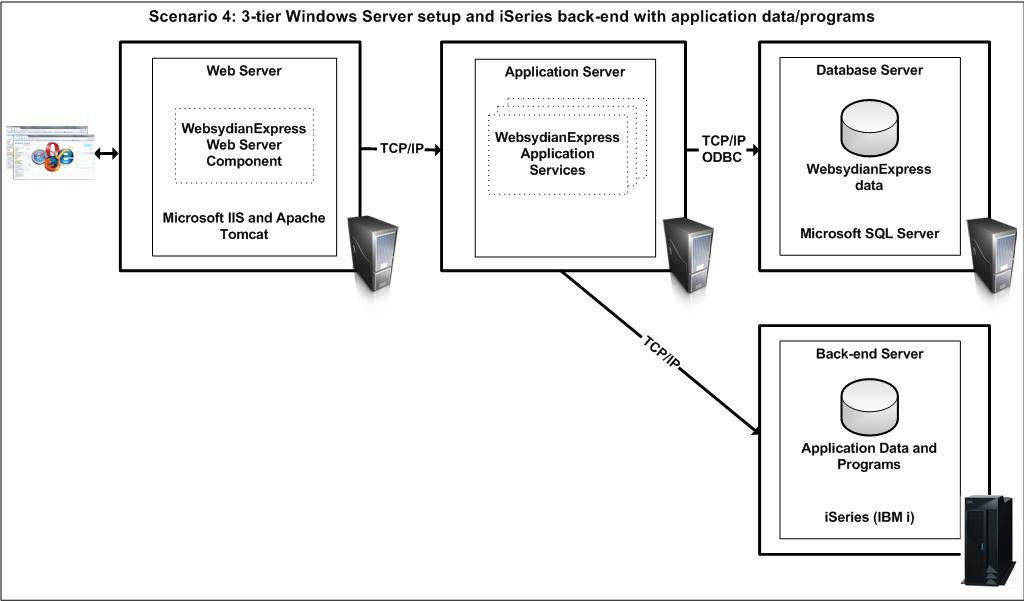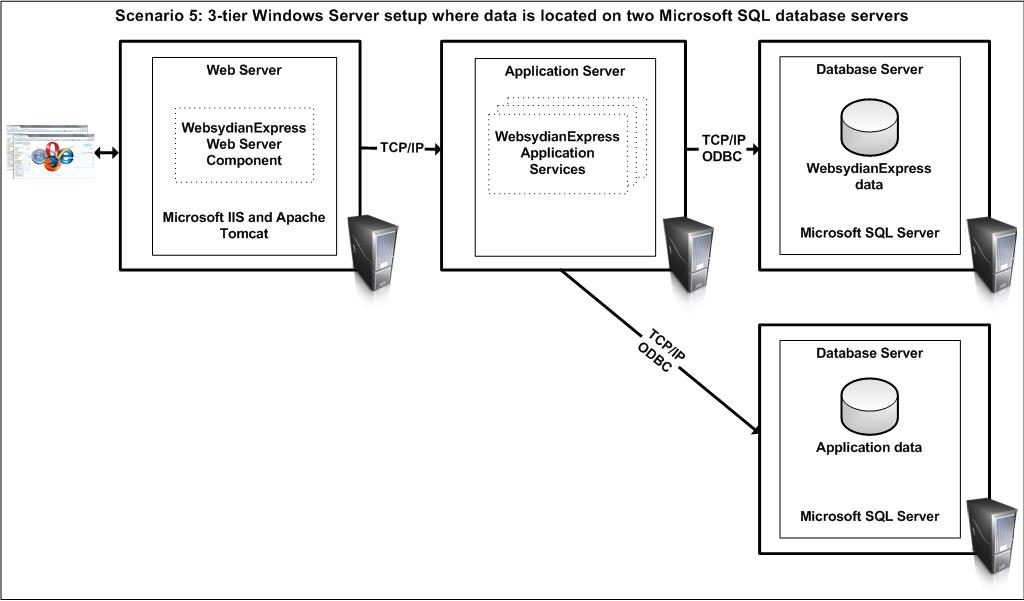|
|
The program you are about to download will help you install WebsydianExpress for Windows.
Your Windows will become the Application server of your WebsydianExpress Applications and will hold all Windows C++ programs. The database is installed on a Microsoft SQL Server either locally or on another Windows server and accessed by the WebsydianExpress Applications using ODBC. You will have a number of options on where to locate your web server.

When developing applications for the WebsydianExpress for Windows you will need CA Plex v6.1 with Websydian v6.1 patterns.
Program objects created for WebsydianExpress for Windows will be C++ objects.
During installation a number of folders and files will be installed on your Windows platform.
A folder structure containing the main application objects will be installed in a location of your choosing.
Default location: C:\Websydian\Express v3.0 for Windows
If you have an Apache Tomcat server installed on the PC where you install WebsydianExpress, you will get the option to install the web server component used by WebsydianExpress on the Tomcat server. If you select to do so, a servlet will be deployed on the Tomcat server. You will later on be able to select another web server if you like.
A database will be installed on the Microsoft SQL Server you specify as part of the install-process.
This database is used for WebsydianExpress runtime. Your own application will use a separate database, which is not part of the installation.
If you have an Apache Tomcat server installed on the PC-server where you install WebsydianExpress, you will get the option to install the web server component used by WebsydianExpress on the Tomcat server. If you select to do so, a servlet application will be deployed on the Tomcat server.
An automatic uninstall is not provided with the installation program but you will be able to uninstall by doing the following:
With WebsydianExpress you will get a WebsydianExpress Web Server Component that will handle the communication between your web server and the WebsydianExpress Applications on your Application Server.
We supply a Servlet based WebsydianExpress Web Server Component. In order to deploy this component you must have a Servlet Engine installed on a PC Web Server in your network or locally.
Communication between the WebsydianExpress Web Server Component and the WebsydianExpress Applications are done by using TCP/IP. The use of TCP/IP enables you to setup a firewalled environment placing your Web Server inside the demilitarized zone (DMZ) of your network.
We recommend the following Servlet Engine:

Scenario 1: All on one Windows Server / Workstation - suitable for internal applications and your development environment.

Scenario 2: Web Server on one Windows Server and the rest on another - Suitable for application accessible from the internet allowing you to isolate the Web Server in your DMZ.

Scenario 3: 3-tier Windows Server setup - where each server is separated in most cases used by large enterprises wanting to setup clusters and load balancing in order to gain the best performance and load distribution. Especially suited for applications with heavy load.

Scenario 4: 3-tier Windows Server setup and iSeries and/or Microsoft SQL Server with application data - An example of the option of communicating with your iSeries back-end from your application. This is suitable for applications where you would like access to iSeries data and programs. This also enables your WebsydianExpress site to be running even though your iSeries is down for maintenance or nightly batch jobs. Also an example of the many options you have when using the WebsydianExpress for Windows. Communication with your iSeries is handled by CA Plex and you are able to access your data directly or even call existing programs (RPG/Cobol) on the iSeries.

Scenario 5: 3-tier Windows Server setup where data is located on two Microsoft SQL database servers - Another example showing you the option of having multiple Microsoft SQL database servers hosting you data. In this case WebsydianExpress data is located on one SQL Server and your application specific data is located on another SQL database server.